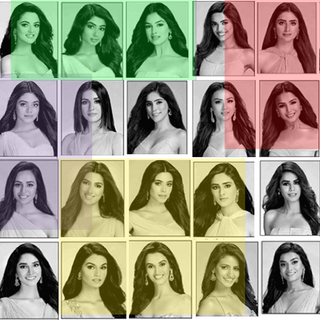Pop culture has a problem: it’s creating powerful female leads, giving them all the characteristics of an ’empowered’ woman, and then stripping their character of screen and speaking time. It reflects one of the ways current feminist discourse is influencing society: once we know the language of equality, and all the ways we can show we believe in it, we no longer feel compelled to do the work to actually ensure it.
For example, analysis of all eight seasons of Game of Thrones conducted by Swedish research firm Ceretai showed that women only spoke 25% of the time in the series, as compared to men, who delivered three quarters of the series’ lines, BBC reported. The show also went on a downward spiral with respect to granting speaking time to female leads, with the season finale depicting a 80:20 ratio.
The firm used an algorithm that identified male and female voices from video, and evaluated gender gaps with 85% accuracy. “We are not doing this to make people stop watching, but to make them aware of the fact that it’s an unfair representation of the world,” Lisa Hamberg, co-founder of Ceretai, told the BBC.
It’s ironic that GoT, which since its inception has been lauded for portraying powerful female characters and doing justice to their arcs, such as for Sophie Turner’s Sansa Stark and Maisie Williams’ Arya Stark, resorted to the same performative tokenism we see in movies and TV shows today. Recently, the show was also under fire for its hurried storytelling of Daenerys Targaryen’s character, who ends up becoming the villain by the end of the last season. Some fans, however, have asserted that it’s where Dany’s murderous instincts were leading the character all along, albeit the arc could have been fleshed out more. It’s disappointing, nonetheless, to have finally seen a good, just woman in power whom we could all get behind, which writers ultimately made toxic — once again reinforcing the idea that power doesn’t sit well in a woman’s hands.
Another analysis of the show, by software firm Looker, found that men in GoT have 29% more lines than women, with Tyrion Lannister at the top, who has 1,300 more lines than Cersei Lannister — the female lead with the most speaking time in the show. Amongst the top 15 GoT characters with the most lines, men made up nine. It’s honestly baffling — Ned Stark, who died at the end of season one, still had more lines than Margaery Tyrell or Melisandre, the latter of whom made appearances right up until the middle of season eight.
Even the dialogue itself reflects a gender bias: Looker evaluated the most spoken words for GoT’s male and female characters. “Men,” “lord,” “king,” “wall,” and “time,” were some of the words uttered most by the show’s female leads, whereas “please,” “master,” “husband,” “love,” and “daughter,” were abundantly found in the women’s dialogues. Researchers did revel in the finding that female characters used words like “stupid,” “liar,” and “oysters,” more than their male counterparts did. Small victories?
Related on The Swaddle:
Netflix’s ‘Dead to Me’ is What Happens When Women Write Women
GoT is emblematic of a bigger problem plaguing popular culture. Analysis of 900 popular Hollywood films by USC Annenberg showed that speaking time granted to female characters averages 30%. Out of the 900, only 12% of films has a balanced cast, with the ratio of male to female characters being 2.3:1, and only 34 women worked as directors. Makes sense: when the people deciding who speaks what do not reflect diversity of thought and experience, how can we expect that to translate on screen?
Another software developer, Hanah Anderson, scrutinized 2,000 screenplays and came to a similar conclusion: 75% of them had more than 60% of the lines spoken by men. She observed a similar trend among Disney moves, even the ones that boasted a female lead; In Mulan, for example, Mushu, the protagonist’s protector dragon, had 50% more lines than Mulan herself.
“You’ve got this misperception that because women are very visible, their bodies are very visible, that somehow equates to a meaningful statement, which doesn’t necessarily have to be the case,” Dr Stephanie Genz, a media studies lecturer at Nottingham Trent University, told the BBC.
Most recently, celebrated filmmaker Quentin Tarantino was criticized for his new film, Once Upon a Time in…Hollywood, at Cannes Film Festival this year, where a reporter asked him about the limited screen time he gave the movie’s female lead, Margot Robbie. In response, he said, “I reject your hypothesis,” The Guardian reported.
Well, Quentin, facts are not yours to reject. We don’t need influential filmmakers to defiantly defend their way of work. We need them to reckon with their own gender bias, and actively try to prevent that from letting it color their work. And if they reject this hypothesis, then I’m afraid we’re going to have to go all Dany-the-Destroyer on their asses.




